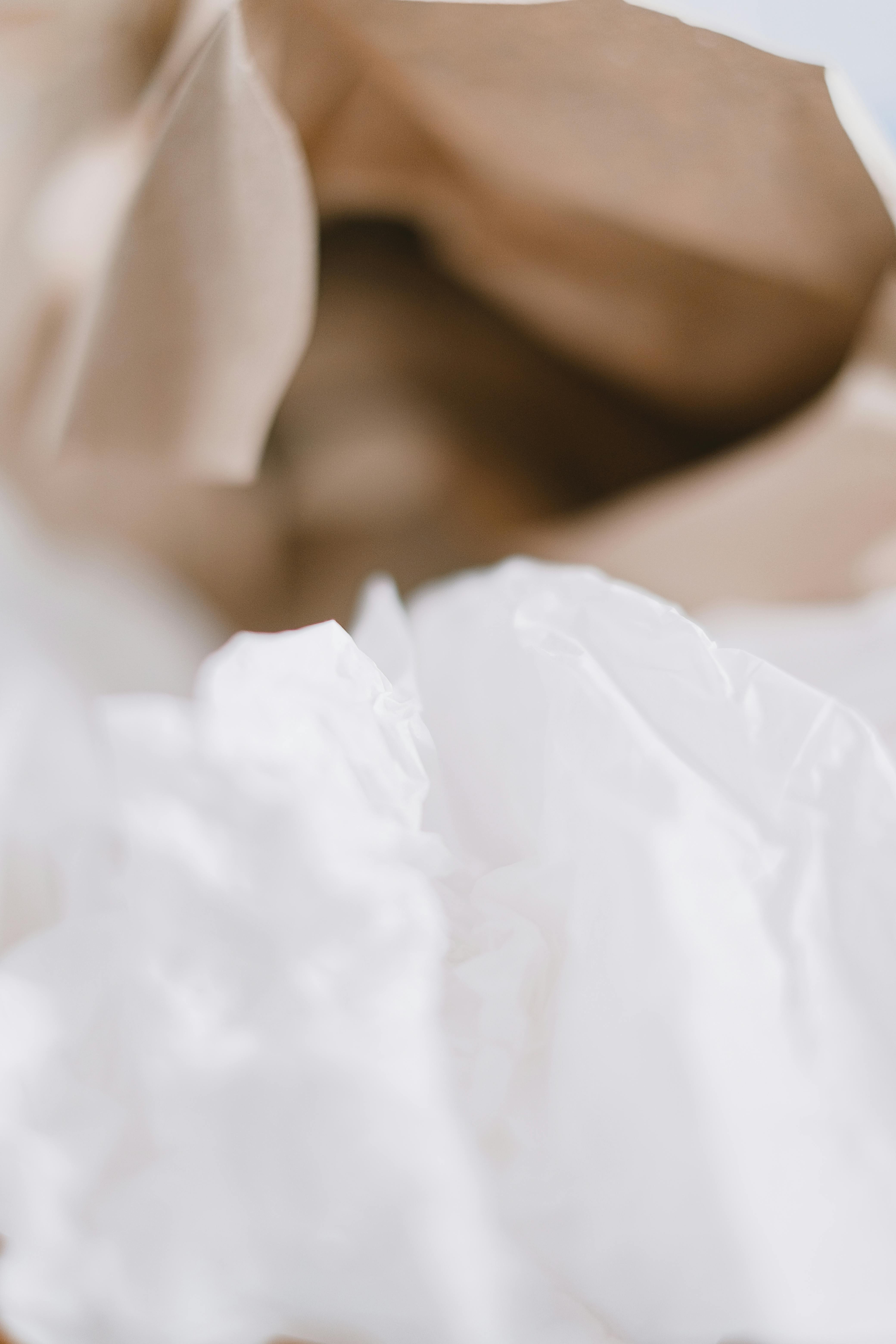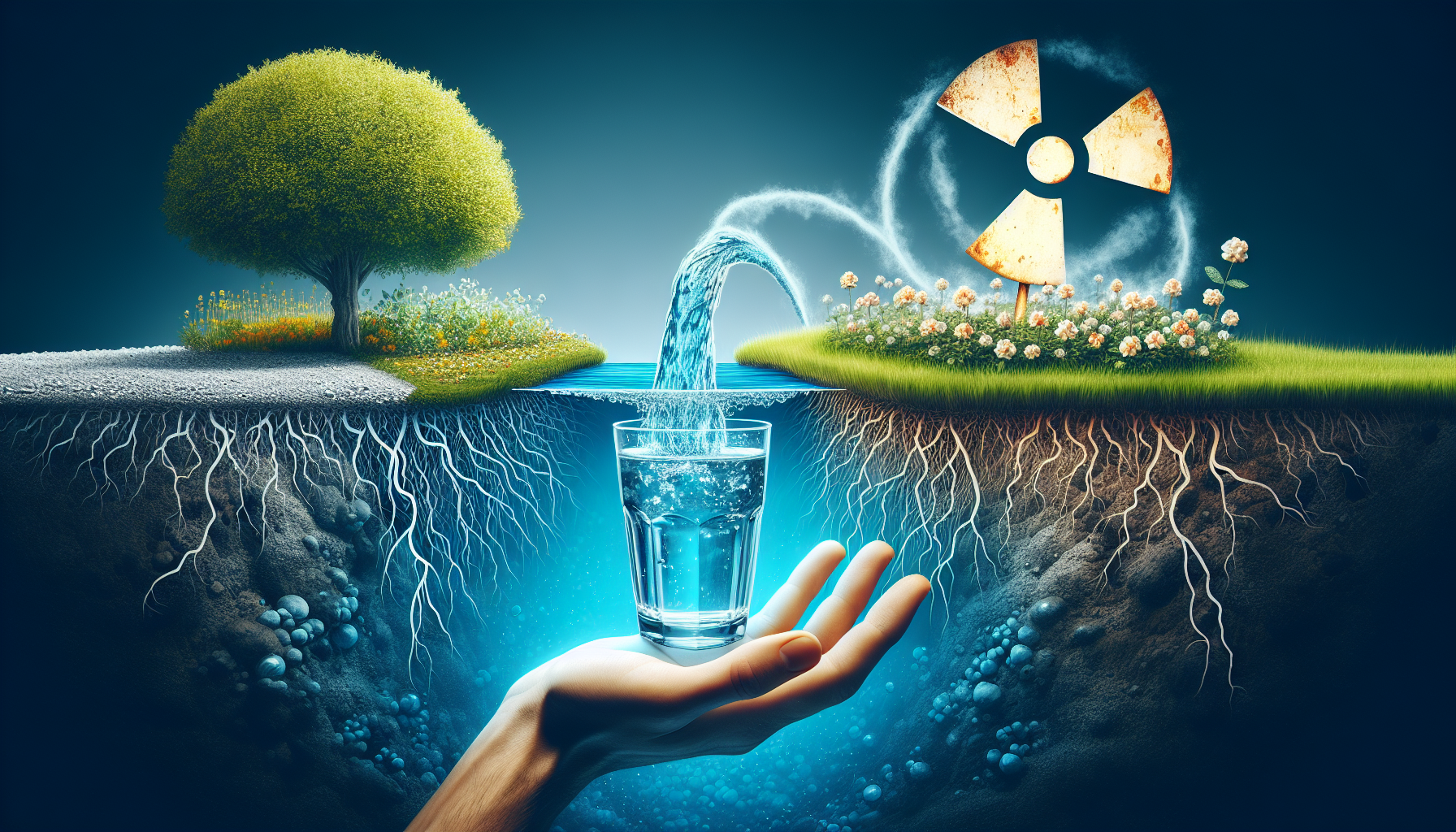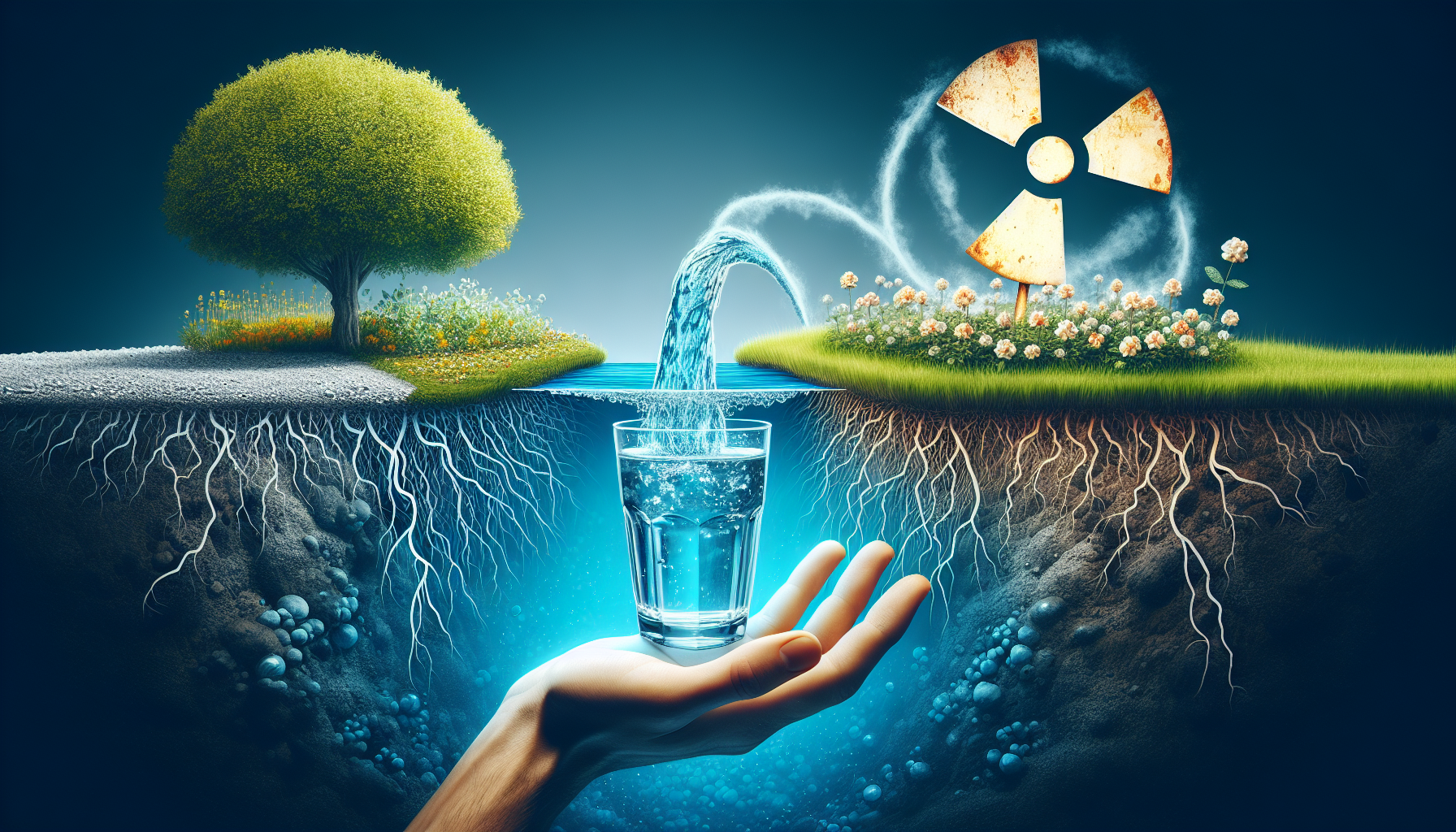Iodine-131, a radioactive isotope commonly found in nuclear power plant accidents, can pose a serious threat to the quality of well water. However, the good news is that there are proactive steps you can take to protect yourself and your family. In this article, we will explore simple yet effective measures to prevent well water contamination by iodine-131, ensuring the safety and well-being of your drinking water. So let’s delve into these practical solutions that will give you peace of mind and keep your well water free from this harmful radioactive substance.

Understanding Iodine-131 Contamination
Iodine-131 contamination refers to the presence of the radioactive isotope iodine-131 in well water. This contamination can occur due to several sources, such as nuclear accidents or the improper disposal of radioactive waste. It is important to understand the potential health risks associated with iodine-131 and take preventive measures to ensure the safety of your well water.
Sources of Iodine-131 Contamination
Iodine-131 can enter the environment through various sources. One of the most significant sources is nuclear accidents, where radioactive material is released into the air and water. Another potential source is improper disposal of radioactive waste, which can contaminate groundwater. Understanding these sources is crucial in preventing iodine-131 contamination and protecting your well water.
Health Risks Associated with Iodine-131
Exposure to iodine-131 can pose serious health risks. This radioactive isotope emits beta and gamma radiation, which can penetrate cells and cause damage. The main health concern associated with iodine-131 is its potential to cause thyroid cancer. The thyroid gland is highly sensitive to radiation and can absorb iodine-131, leading to the development of cancerous cells. Other health effects may include radiation sickness, genetic mutations, and reproductive problems. It is essential to prevent iodine-131 contamination to safeguard your well water and protect your health.
Importance of Preventing Iodine-131 Contamination
Preventing iodine-131 contamination is crucial for maintaining the safety of your well water and safeguarding your overall health. Even at low levels, exposure to iodine-131 can have detrimental effects on human health. By taking preventive measures, you can reduce the risk of contamination and ensure the water you consume is free from harmful radioactive isotopes. Testing well water regularly, protecting your well infrastructure, and treating well water are all essential steps in preventing iodine-131 contamination.

Testing Well Water for Iodine-131
Regular testing of well water is essential to ensure its safety and detect any presence of iodine-131 contamination. The frequency of testing depends on various factors, such as proximity to potential contamination sources and local regulations. It is advisable to test well water at least once a year, but more frequent testing may be necessary in high-risk areas.
Various testing methods can detect iodine-131 in well water. Some common methods include gamma spectrometry and liquid scintillation counting. Gamma spectrometry measures the gamma radiation emitted by iodine-131, while liquid scintillation counting detects radioactive particles in the water.
If you are unsure about performing the tests yourself, professional water testing services are available. These services have the expertise and equipment to accurately analyze well water for iodine-131 contamination and other potential pollutants. Consulting professionals can provide peace of mind and ensure the accuracy of the results.
Protecting Your Well from Iodine-131 Contamination
Maintaining the infrastructure of your well is essential in preventing iodine-131 contamination. Regular inspections and proper maintenance can ensure that your well remains secure and free from potential sources of contamination. Some key measures to protect your well include:
Maintaining Well Infrastructure
Regularly inspecting and maintaining your well infrastructure is crucial for preventing iodine-131 contamination. This includes checking for any cracks or leaks in the well casing, ensuring proper sealing to prevent the entry of contaminants.
Proper Well Sealing
Properly sealing your well can prevent the intrusion of surface water, which may be contaminated with iodine-131. Ensuring that the well cap is securely tightened and the casing is sealed can significantly reduce the risk of contamination.
Avoiding Cross-Contamination
Preventing cross-contamination is essential to protect your well water from potential sources of iodine-131. Avoid using hazardous chemicals near the well and ensure proper disposal of any radioactive or toxic waste. Additionally, keeping livestock away from the well area can minimize the risk of contamination.

Treating Well Water to Eliminate Iodine-131
If iodine-131 contamination is detected in your well water, various treatment methods can be used to eliminate it and ensure the water’s safety for consumption. Some effective treatment methods include:
Activated Carbon Filtration
Activated carbon filtration is a common method for removing iodine-131 from well water. The activated carbon attracts and absorbs the iodine-131 particles, effectively removing them from the water.
Reverse Osmosis
Reverse osmosis is another effective method for eliminating iodine-131 from well water. It uses a semipermeable membrane to filter out contaminants, including radioactive particles like iodine-131.
Distillation
Distillation involves boiling the well water and collecting the steam, which is then condensed back into liquid form. This process effectively removes iodine-131 and other impurities, providing purified water.
It is important to consider the specific needs and characteristics of your well water before implementing any treatment method. Consulting with water treatment professionals can provide valuable guidance and ensure the most suitable treatment solution for your situation.
Ensuring Safe Water Consumption
Even after taking preventive measures and treating well water, there are further steps you can take to ensure its safety for consumption. These measures can provide an extra layer of protection and peace of mind:
Boiling Well Water
Boiling well water for at least one minute can effectively kill most bacteria, viruses, and parasites that may be present. This process can be an additional safeguard against potential contaminants, including iodine-131.
Using Water Disinfection Tablets
Water disinfection tablets, such as iodine tablets, can be used to further disinfect well water. These tablets release iodine into the water, helping to neutralize any potential iodine-131 contamination. Follow the instructions provided with the tablets for proper usage.
Iodine Neutralization
If iodine-131 contamination persists, iodine neutralization solutions can be used to help remove the iodine particles from well water. These solutions chemically react with iodine, converting it into a less harmful form.
Implementing these additional measures can provide an extra level of confidence in the safety of your well water and ensure that the water you consume is free from iodine-131 and other potential contaminants.

Staying Informed and Educated
Remaining informed about local and state regulations regarding well water safety is crucial in preventing iodine-131 contamination. Stay updated on any changes or guidelines provided by regulatory authorities to ensure you are taking the necessary preventive measures.
Educational resources, such as brochures, online materials, or workshops, can also provide valuable information on well water safety and prevention of contamination. These resources can help you understand the risks associated with iodine-131 and equip you with the knowledge needed to protect your well water.
Community awareness is another essential aspect of preventing iodine-131 contamination. Engage with local community organizations or attend public meetings related to water safety and contamination prevention. Collaborating with others can foster a sense of collective responsibility and enhance the effectiveness of preventive measures.
Emergency Measures for Iodine-131 Contamination
In the event of iodine-131 contamination emergencies, it is vital to be prepared and aware of the necessary steps to take. Some emergency measures to consider include:
Evacuation Protocols
Familiarize yourself with evacuation protocols established by local authorities in the event of iodine-131 contamination. Understand the designated evacuation routes and locations to ensure your safety and the safety of your community.
Contacting Relevant Authorities
If you suspect or confirm iodine-131 contamination in your well water, contact relevant authorities immediately. Local health departments, environmental protection agencies, or emergency management agencies can provide guidance and support during such situations.
Emergency Water Sources
Identify alternative emergency water sources in your area, such as community water stations or emergency supply centers. Having a backup source of water can be crucial during iodine-131 contamination emergencies when your well water is not safe for consumption.
Taking these emergency measures seriously and being prepared can help mitigate the potential risks associated with iodine-131 contamination.

Preventing Iodine-131 Contamination in Agricultural Practices
Agricultural practices can play a significant role in preventing iodine-131 contamination in water sources. Implementing proper fertilizer management techniques, embracing responsible storage and disposal practices, and preventing water runoff are crucial steps in preventing agricultural-related contamination:
Proper Fertilizer Management
Using fertilizers responsibly and following recommended application rates can help minimize the risk of iodine-131 contamination. Excessive use of fertilizers can lead to runoff, which may contaminate nearby water sources. Adopting sustainable farming practices and consulting agricultural experts can provide guidance on proper fertilizer management.
Storage and Disposal Practices
Proper storage and disposal of hazardous materials, including radioactive waste, is essential to prevent contamination. Ensure that all chemicals and radioactive materials are securely stored in designated containers and away from water sources. Follow local regulations for the safe disposal of these materials.
Water Runoff Prevention
Implementing erosion control measures, such as contour plowing, buffer strips, or terracing, can help prevent water runoff and the potential contamination of nearby wells. Diverting runoff away from water sources and implementing proper drainage systems are effective ways to reduce the risk of iodine-131 contamination.
Collaborating with Community and Officials
Collaborating with your community and relevant officials can significantly enhance preventive efforts against iodine-131 contamination. Consider the following initiatives:
Community Action Plans
Engage with community organizations or form local action groups focused on water safety and iodine-131 prevention. Developing community action plans that promote awareness, education, and preventive measures can help ensure continuous progress in safeguarding your well water.
Government Initiatives
Stay informed about government initiatives and policies related to water safety and contamination prevention. Active participation in public consultations, providing feedback, or supporting legislative measures can positively contribute to iodine-131 prevention efforts at a larger scale.
Collaborative Outreach Programs
Collaborate with local health organizations, universities, or environmental groups to organize outreach programs. These programs can involve educational workshops, distribution of informational materials, or training sessions on iodine-131 prevention. Engaging the community in these initiatives fosters a shared responsibility for water safety.
The Role of Health Organizations and Professionals
Health organizations and professionals play a vital role in assessing health risks, establishing guidelines, and providing treatment and support services related to iodine-131 contamination:
Health Risk Assessments
Health organizations conduct risk assessments to evaluate the potential health effects of iodine-131 contamination. These assessments provide valuable information on exposure levels, associated risks, and necessary preventive measures.
Guidelines for Water Safety
Health organizations develop and disseminate guidelines for water safety that include measures to prevent iodine-131 contamination. These guidelines cater to individuals, communities, and health professionals and assist in implementing preventive strategies.
Treatment and Support Services
Health professionals offer specialized treatment services for individuals affected by iodine-131 contamination. These services may include medical treatments, follow-up care, and counseling to support individuals and communities in coping with the health implications of contamination.
By working closely with health organizations and professionals, you can benefit from their expertise, guidance, and resources to enhance your preventive efforts and ensure the safety of your well water.
In conclusion, preventing iodine-131 contamination is crucial for maintaining the safety and integrity of your well water. Understanding the sources, health risks, and preventive measures associated with iodine-131 contamination empowers you to take proactive steps in safeguarding your well water. Regular testing, well maintenance, treatment, and consumption safety measures are all essential components of preventing iodine-131 contamination. Additionally, staying informed, collaborating with your community and officials, and engaging with health organizations contribute to the collective endeavor of ensuring water safety. By implementing these measures and seeking guidance from professionals, you can effectively minimize the risk of iodine-131 contamination and enjoy clean and safe well water for yourself and your community.

